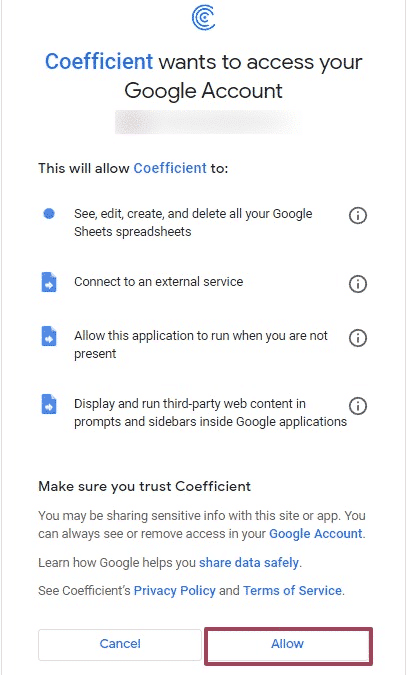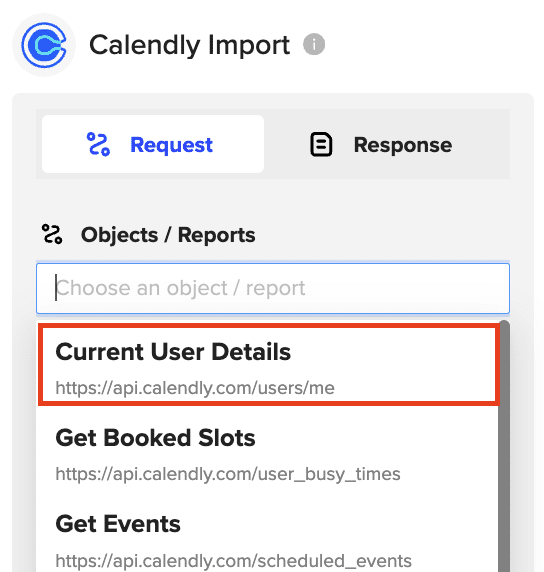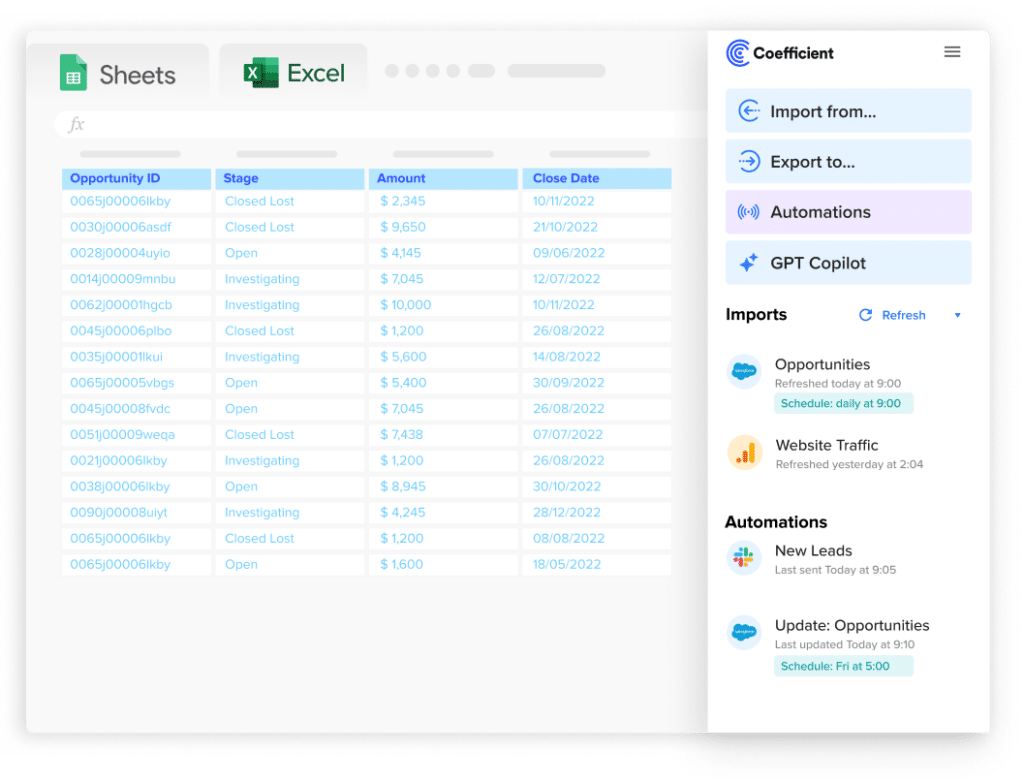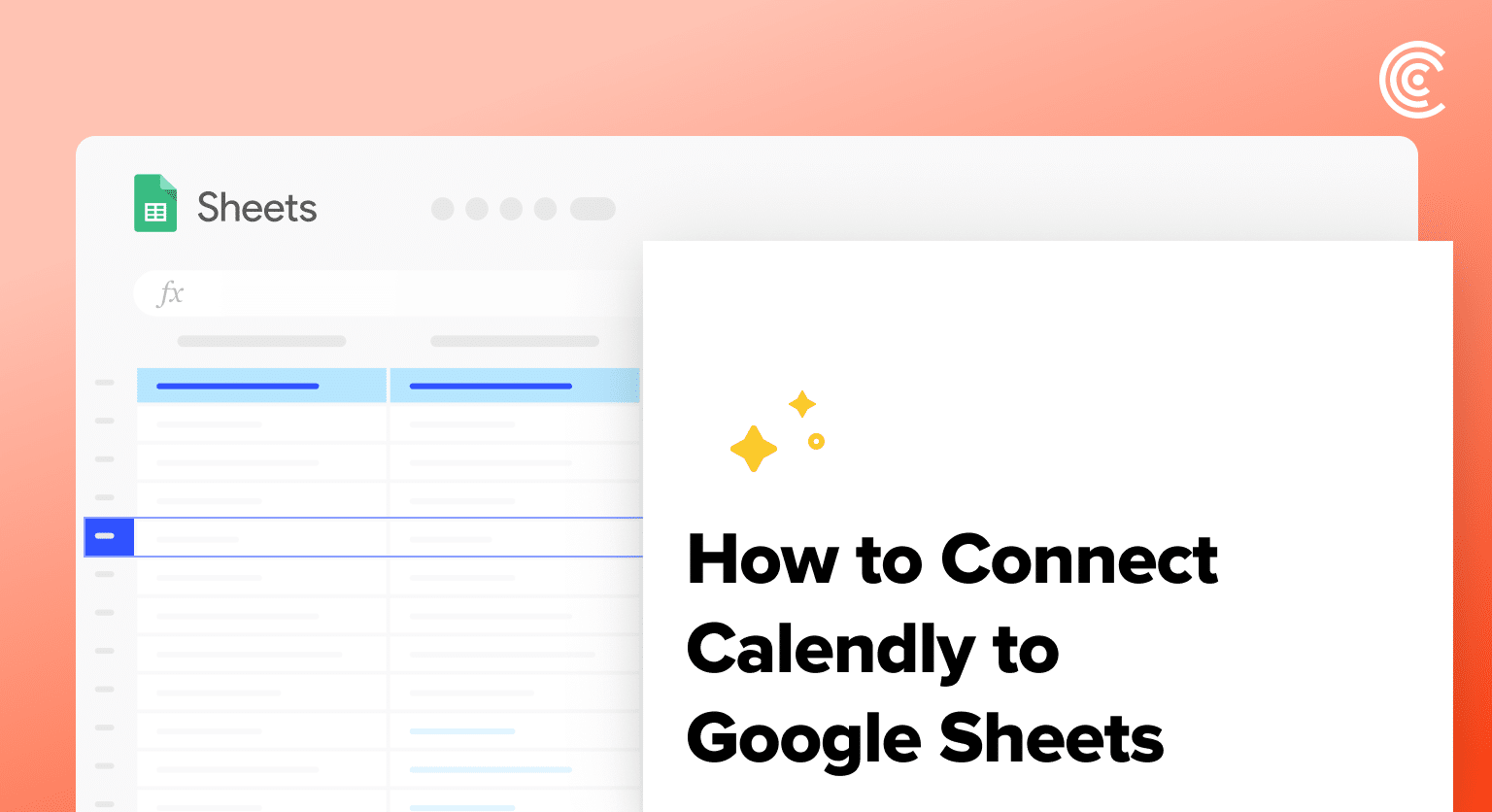Calendly is a popular scheduling tool that helps you schedule meetings and appointments efficiently.
By connecting Calendly to Google Sheets using Coefficient, you can easily import your event data into a spreadsheet for further analysis and management.
This tutorial will guide you through the process of setting up the integration and fetching your Calendly data into Google Sheets.
Prefer video? Watch the tutorial here!
Advantages of Using Google Sheets to Analyze Calendly Data
- Centralized event data: Consolidate your Calendly event data in one place, making it easier to access and manage your scheduled events, invitees, and availability.
- Customizable reporting: Create custom reports and dashboards in Google Sheets to gain insights into your event scheduling patterns and performance.
- Collaborative event management: Share your Calendly data with team members and collaborate on event management tasks in real-time.
How to Install Coefficient in Google Sheets
Before we get started, you’ll need to install Coefficient in Google Sheets. Follow these simple steps to get started:
Navigate to the top menu and click ‘Extensions’ > Add-ons > Get add-ons.

This will launch Google Workspace Marketplace.
Type “Coefficient” in the search bar. Select the first app that appears.

Grant Coefficient access your Google Account by clicking ‘Allow,’ when prompted.

Coefficient will appear in the extension menu of Google Sheets.
Navigate to the app and click ‘Launch.’

Coefficient will open on the right-hand side of your spreadsheet.

Step-by-Step Tutorial: Connecting Calendly to Google Sheets
With Coefficient installed, you’re now ready to import your Calendly data into Google Sheets. Let’s walk through the process step by step:
Import your Current User Details
In the Coefficient sidebar, click on “Add a Data Source” and select “Calendly” from the list of available data sources.

Follow the prompts to continue.

Choose “Current User Details” as the object and click “Preview.”

Copy the user URI from the preview, as it will be required for other imports.

Get a list of your Calendly events
Select “Get Events” as the object in the Coefficient sidebar.

Paste your user Uri into the required field and click “Import.”

Stop exporting data manually. Sync data from your business systems into Google Sheets or Excel with Coefficient and set it on a refresh schedule.


The imported data will show your scheduled events, allowing you to analyze meeting types, cancellations, and active events.
Get event invitees for a specific event
Copy the Uri for a specific event from the imported event data.

In the Coefficient sidebar, select “Get Event Invitees” as the object.

Paste the event Uri into the required field, removing the “/invitees” part at the end.

Click “Import” to fetch the invitee data for the selected event.

Use the imported invitee data to track RSVPs, manage reminders, and perform follow-up actions.
Explore other objects and features
Experiment with other objects like “Get Booked Slots” to import additional Calendly data.
You can also set up data refreshes, snapshots, and alerts to keep your Calendly data up-to-date and monitor changes.

Use Cases for Analyzing Calendly Data in Google Sheets
- Audit your availability schedules: Use the “Get Availability Schedules” object to review and manage your Calendly availability settings.
- Track event types and details: Import your event types using the “Get Event Types” object to analyze event durations, descriptions, and active status.
- Monitor booked slots: Use the “Get Booked Slots” object to view your scheduled events for a specific week, helping you manage your calendar more effectively.
- Manage event invitees: Import event invitee data using the “Get Event Invitees” object to track RSVPs, send reminders, and follow up with attendees.
Tips and Tricks for Analyzing Live Calendly Data in Google Sheets
- Use Google Sheets’ built-in functions and formulas to analyze your Calendly data, such as calculating event attendance rates or identifying popular meeting types.
- Combine data from multiple Calendly objects to create comprehensive event management dashboards.
- Leverage Google Sheets’ sharing and collaboration features to work with your team on Calendly data analysis and event management tasks in real-time.
- Set up automatic data refresh schedules in Coefficient to ensure your Calendly data in Google Sheets is always up to date.
Connect Calendly to Google Sheets in Seconds with Coefficient
Connecting Calendly to Google Sheets using Coefficient streamlines the process of importing and analyzing your event data.
By following this tutorial, you can easily fetch your Calendly data into a Google Sheets spreadsheet and take advantage of the powerful tools available in Google Sheets to gain valuable insights into your event management process.
Start using Coefficient today to supercharge your Calendly data analysis workflow.


